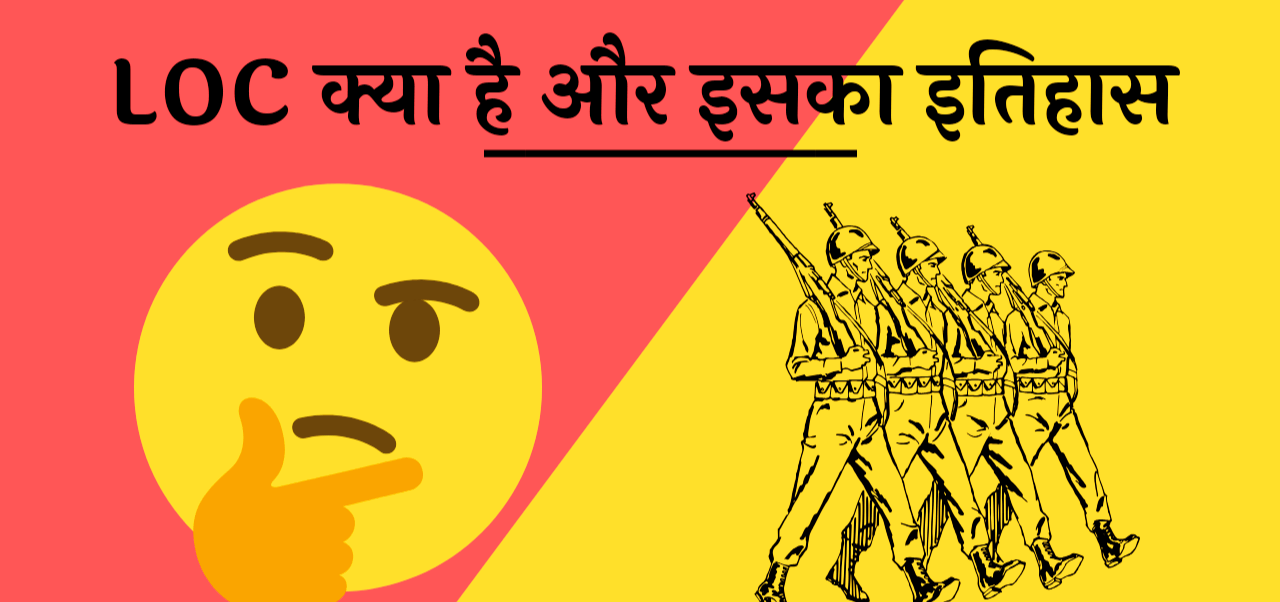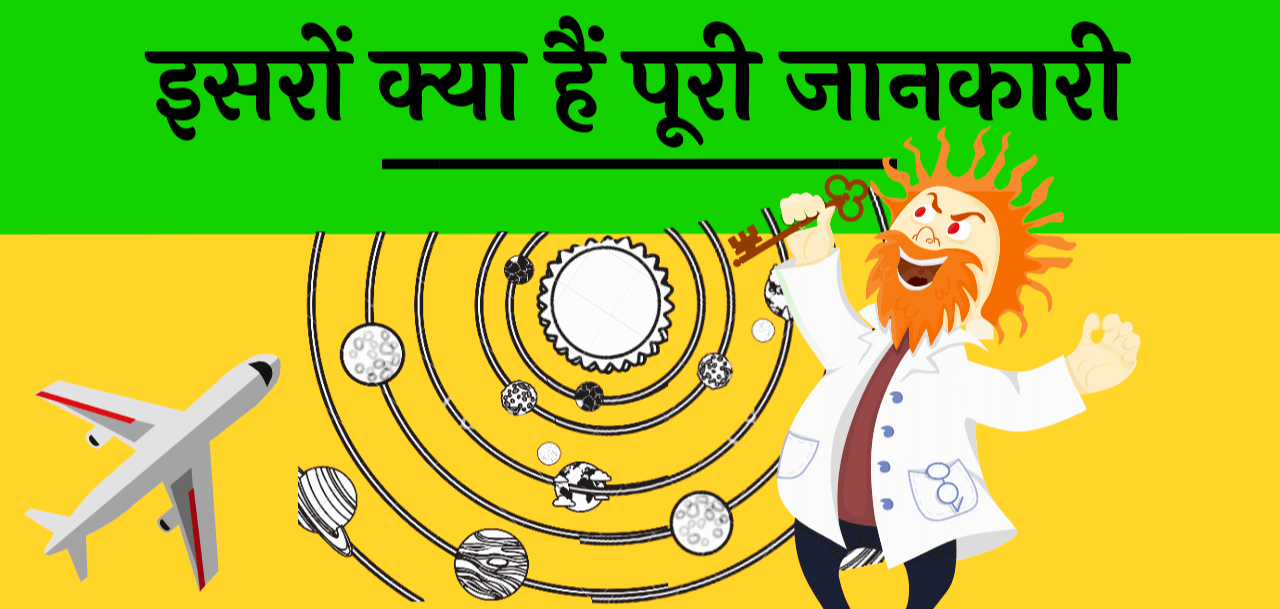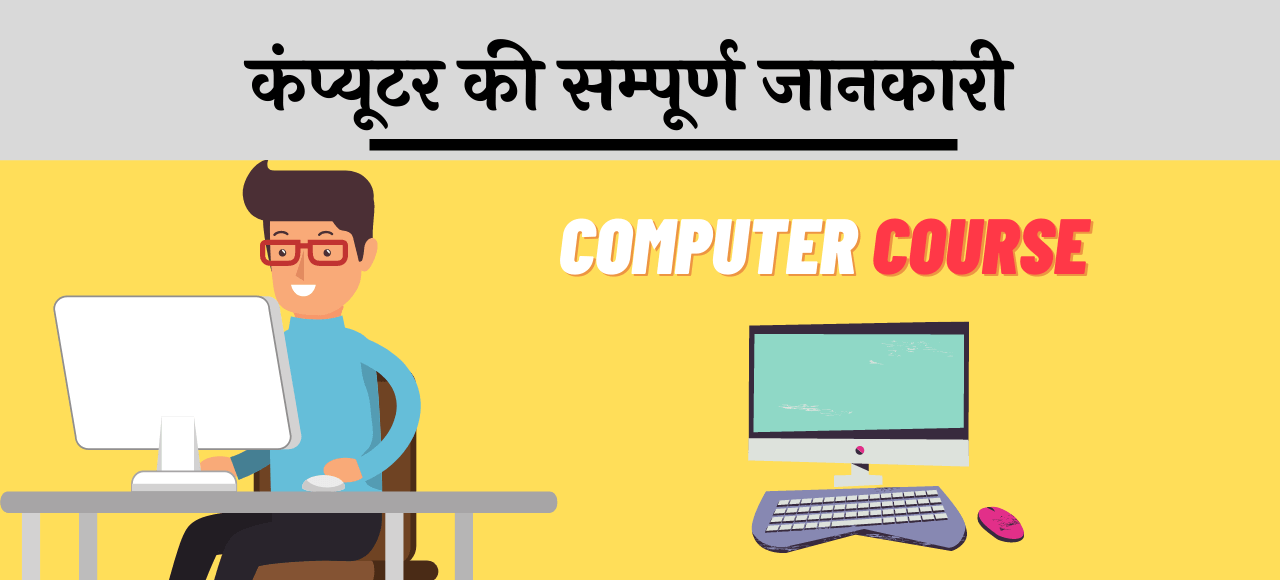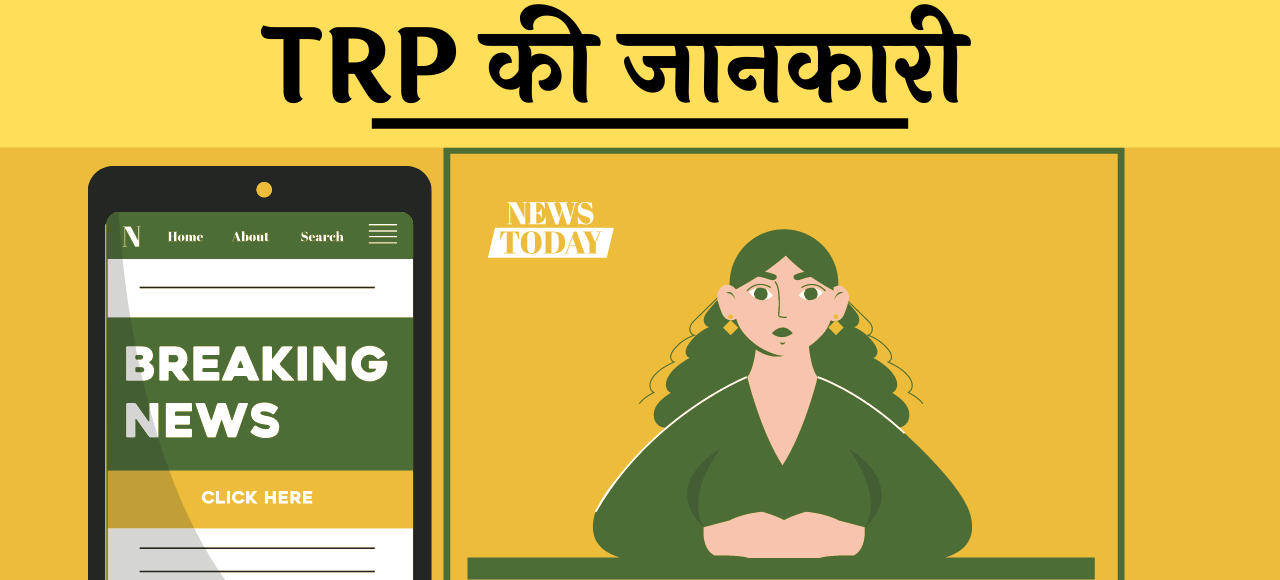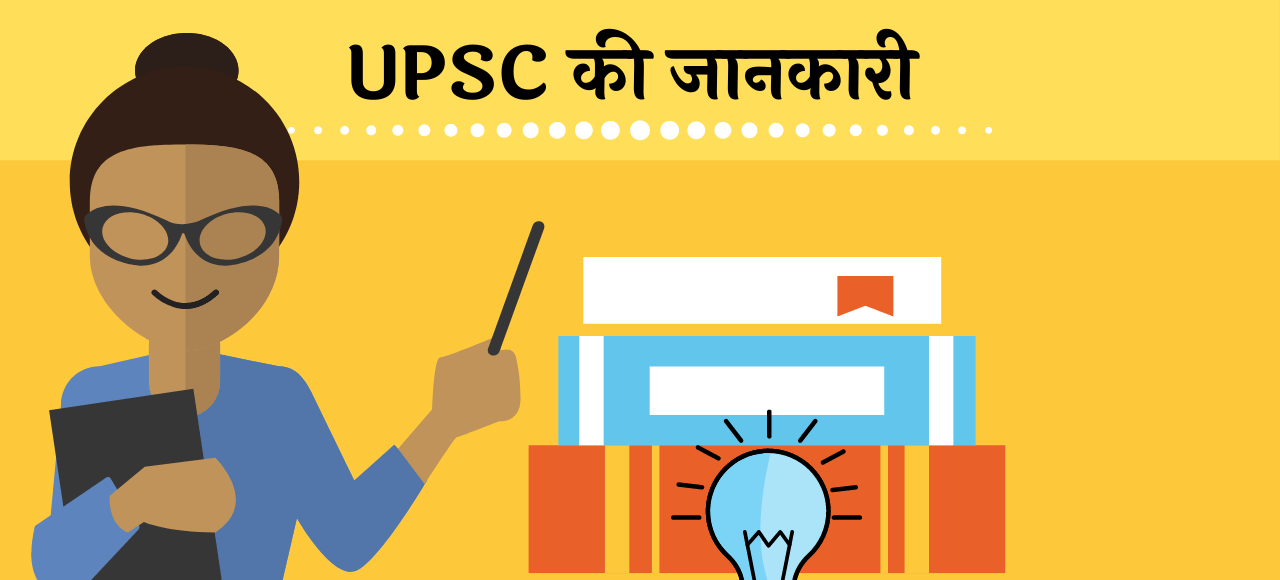
UPSC भारत में उच्च प्रशासनिक पदों के लिए हर साल कई परीक्षाओ का आयोजन करती हैं जिसमें करोड़ों विद्यार्थी हर साल अपने सपनों को साकार करने के लिए एग्जाम देते है UPSC भारत की सबसे कठिन परीक्षा मानी जाती हैं इसलिए आपको UPSC syllabus औऱ UPSC Exam Pattern की जानकारी होनी चाहिए।
क्योंकि हर विद्यार्थी का सपना होता है कि वह उच्च प्रशासनिक पदों की नौकरी प्राप्त करें जिसमें अच्छी सैलरी के साथ-साथ मान सम्मान और पॉवर मिलती हैं इसलिए हर साल लाखों-करोड़ों विद्यार्थियों द्वारा UPSC Exam दिए जाते हैं।

लेकिन आज भी बहुत सारे ऐसे नये विद्यार्थी है जिनको UPSC Full Form के बारे में भी जानकारी नही होतीं औऱ अगर वह उच्च प्रशासनिक पदों की नौकरी पाने का सपना ऱखते हैं तो उनके लिए UPSC क्या है इसकी सम्पूर्ण जानकारी होनी चाहिए ताकि वह अच्छी तरह अपनी तैयारी शुरू कर सकें।
इसलिए आज हम आपको यूपीएससी(UPSC) के बारे में पूरी जानकारी देने का प्रयास करेंगे जैसे UPSC क्या है, UPSC Full Form, कौन-कौन से एग्जाम कंडक्ट करवाए जाते हैं, एक्जाम पेटर्न(Exam Pattern) और UPSC Syllabus क्या है इत्यादि।
साथ ही हम यह भी जानेंगे कि UPSC की तैयारी कैसे करें औऱ UPSC की तैयारी करते वक़्त हमे किन बातों का विशेष तौर पर ध्यान रखना चाहिए तो अगर आप इन सभी बातों को डिटेल में समझना चाहते हैं तो इस पोस्ट को पूरा पढ़ें।
Highlights
UPSC क्या हैं
यूपीएससी भारत की उच्च प्रशासनिक पदों की भर्तियां आयोजित करने वाली एजेंसी हैं जो ग्रुप A और ग्रुप B की सरकारी नौकरी की नियुक्तियां करती हैं जिसकी स्थापना 26 अक्टूबर 1950 को आज़ाद भारत के सवैधानिक प्रवधान के तहत की गई थी।
UPSC हमारे देश की सबसे प्रतिष्ठित सेवाओं में से एक हैं जिसकी परीक्षाओं को पास कर आप भारतीय सरकार के उच्च पदों की जिम्मेदारी संभालते है जिसका मुख्यालय नई दिल्ली है।
UPSC Full Form क्या हैं
यूपीएससी का पूरा नाम यानी UPSC Full Form हैं Union Public Service Commission जिसे हिन्दी मे संघलोक सेवा आयोग के नाम से जाना जता हैं जोकि अखिल भारतीय सेवाओं व केंद्रीय सेवाओ के साथ-साथ भारतीय संघ के सशस्र बलों के लिए परीक्षाओं का आयोजन करती हैं।
| UPSC Full Form- |
| U- Union |
| P- Public |
| S- Service |
| C- Commission |
UPSC (Civil Service) की शुरुआत कैसे हुई?
सिविल सेवा की शुरुआत भारत में, लॉर्ड कॉर्नवालिस(Lord Cornwallis) ने ब्रिटिश शासन के दौरान की थी औऱ भारत में सिविल सेवा की शुरुआत करने का मुख्य कारण था कि भारत में ब्रिटिश भू-क्षेत्रों का बेहतर ढंग से प्रशासन किया जा सके क्योंकि सन 1600 में स्थापित ईस्ट इंडिया कंपनी के पास भी अपनी सिविल सेवा थी जिनके द्वारा बाणिज्यिक कार्यों को संपन्न किया जाता था।
सिविल सर्विस की नौकरी मिलना कोई आम बात नहीं है इसका उदाहरण पुराने काल से ही देखने को मिलता आ रहा है कौटिल्य के अर्थशास्त्र से भी इस बात का संकेत मिलता है कि इस काल में भी सिविल सेवकों के चयन की प्रक्रिया बेहद कठिन होतीं थीं।
साम्राज्य में इस बात पर काफी ध्यान दिया जाता था कि सिविल सेवकों प्रशासकों की नियुक्ति में उनके गुणों व श्रेष्ठता के आधार पर योग्य सिविल सेवकों को ही नियुक्ति दी जाती थी। कौटिल्य के अनुसार उस समय भी सिविल सेवको में दो गुणों का होना आवश्यक होता था एक निष्ठा और दूसरा ईमानदारी।
UPSC (Civil service) का विकास
मुगल काल के दौरान अकबर ने अप्रत्यक्ष रूप से सिविल सेवा को बढ़ावा देने का प्रयास किया था उनके प्रयासों के बाद से धीरे धीरे सिविल सेवकों की बहुत मांग होने लगी औऱ सन 1911 में युवा सिविल सेवकों को प्रशिक्षण देने के लिए कलकत्ता में फोर्ट विलियम के नाम से एक कॉलेज खोला गया था।
इस कॉलेज में नौजवान युवाओं को सिविल सेवा के लिए प्रशिक्षण दिया जाता था इसके अलावा इंग्लैंड में भी ईस्ट इंडिया कॉलेज था जो इन युवाओं को प्रशिक्षण देता था जिसमें सिविल सेवकों का चयन ईस्ट इंडिया कंपनी के निदेशकों द्वारा किया जाता था।
लेकिन 1853 में इस पद्धति को समाप्त कर दिया गया जिसके बाद सिविल सेवकों को प्रतिस्पर्धात्मक परीक्षा के जरिए नियुक्त किए जाने की शुरुआत हुई औऱ 1922 के बाद से भारत में इंडियन सिविल सर्विस (ICS) के लिए भर्ती पूर्ण योग्यता के आधार पर होने लगी।
जब बात योग्यता की ही हो रही है तो हमारे लिए यह जान लेना भी जरूरी है कि Civil Service की परीक्षा में बैठने के लिए हमारी नुंयतम योग्यता क्या होनी चाहिए तो चलिए जानते हैं।
UPSC के लिए योग्यता
1. आपका ग्रेजुएशन कम्पलीट होना चाहिए और अगर आप अपने ग्रेजुएशन के फाइनल ईयर में हैं तभी भी आप आवेदन कर सकते हैं लेकिन निर्धारित तारीख के अंदर-अंदर आपका फाइनल मार्कशीट आपके हांथ में होना चाहिए।
2. आप भारत के नागरिक होने चाहिए।
3. आपकी नुन्यतम आयु 21 वर्ष से कम नही होनी चाहिए और अधिकतर आयु सीमा 32 वर्ष है अगर आप OBC हैं तो आपको 3 साल की छूट प्राप्त होगी और अगर आप SC या ST है तो आपको 5 साल की छूट मिलेगी।
अब बात आती है की अगर हम UPSC Exam के लिए योग्य है तो एक मुख्य सवाल और भी है कि हम ज्यादा से ज्यादा कितनी बार UPSC की परीक्षा में बैठ सकते हैं यह भी आपके लिए जानना बहुत जरूरी है तो चलिए जानते हैं।
Maximum Attempt –
अगर आप जनरल केटेगरी से हैं तो आप कुल मिलाकर 6 बार सिविल सर्विस की परीक्षा में बैठ सकते हैं और अगर आप OBC केटेगरी से है तो आप 9 बार इस परीक्षा में बैठ सकते हैं। इसके अलावा एससी और एसटी कैटेगरी के लिए परीक्षा में बैठने की कोई खास लिमिट नहीं है वह अपने ऐज लिमिट समाप्त होने तक कितने भी बार इस परीक्षा में बैठ सकते हैं।
UPSC Syllabus औऱ Exam Pattern की जानकारी
सिविल सर्विस परीक्षा कुल 3 चरणों में आयोजित की जाती है सबसे पहले प्रारंभिक परीक्षा होती है प्रारंभिक परीक्षा में सिर्फ 2 पेपर 200, 200 मार्क्स के होते हैं और जो उम्मीदवार प्रारंभिक परीक्षा को पास करते हैं उन्हें मुख्य परीक्षा के लिए बुलाया जाता है।
सबसे कठिन परीक्षा मुख्य परीक्षा होती है इसमें कुल मिलाकर 9 पेपर होते हैं जिनमें से 2 पेपर सिर्फ क्वालिफाइड नेचर के होते हैं और बाकी के 7 पेपर आपकी रैंकिंग तय करते हैं क्वालिफाइड नेचर के जो 2 पेपर होते हैं वह दोनों 300, 300 अंकों के होते हैं और बाकी के 7 पेपर जोकि मेरिट पेपर होते हैं प्रत्येक पेपर 250 अंक के होते है।
कुल मिलाकर 7 मेरिट पेपर्स के मार्क 1750 होते हैं जो उम्मीदवार मुख्य परीक्षा को पास करते हैं वह फाइनल परीक्षा यानी साक्षात्कार के लिए बुलाए जाते हैं और साक्षात्कार परीक्षा में कुल 275 मार्क होते हैं साक्षात्कार में सफल होने के बाद सिविल सर्विस की जॉब मिल जाती है।
UPSC Syllabus की जानकारी
| General Studies – Paper 1 | |
| Questions – | 100 |
| Total Marks- | 200 |
| Time- | 2 HRS |
| Negative Mark- | ONE THIRD |
| Paper Type- | OBJECTIVE |
| General Studies – Paper 2 | |
| Questions – | 80 |
| Total Marks- | 200 |
| Time- | 2 HRS |
| Negative Mark- | ONE THIRD |
| Paper Type- | OBJECTIVE |
| UPSC मुख्य परीक्षा की प्रणाली इस प्रकार है | ||
| प्रश्नपत्र- A | क्वालीफाइंग:1 (अंग्रेजी भाषा) | 300 Marks |
| प्रश्नपत्र- B | क्वालीफाइंग:2 (हिंदी भाषा या 8 वीं अनुसूची में शामिल कोई भी भाषा) | 300 Marks |
| प्रश्नपत्र- 1 | निबंध | 250 Marks |
| प्रश्नपत्र- 2 | सामान्य अध्ययन:1 | 250 Marks |
| प्रश्नपत्र- 3 | सामान्य अध्ययन:2 | 250 Marks |
| प्रश्नपत्र- 4 | सामान्य अध्ययन:3 | 250 Marks |
| प्रश्नपत्र- 5 | सामान्य अध्ययन:4 | 250 Marks |
| प्रश्नपत्र- 6 | वैकल्पिक विषय:1 | 250 Marks |
| प्रश्नपत्र- 7 | वैकल्पिक विषय:2 | 250 Marks |
इसमें पहले दो पेपर क्वालीफाइंग नेचर के प्रश्न पत्रो की न्यूनतम अंक सीमा 25% यानी 75 अंक और अंग्रेजी में भी न्यूनतम अर्हता 25% यानी 75 अंक निर्धारित किए हुए रहते हैं। मुख्य परीक्षा के प्रश्न अंग्रेजी और हिंदी इन दोनों भाषाओं में दिए रहते हैं और आप संविधान की आठवीं अनुसूची में शामिल 22 भाषाओं में से किसी भी एक भाषा में उत्तर दे सकते हैं।
अब बात करते हैं प्रश्न पत्र 1 की जिसमें आपको निबंध लिखना रहता है उसमे आपको चार विकल्प दिए रहते हैं और आपको अपने पसंद अनुसार किसी एक विषय में निबंध लिखना होता है निबंध लिखित परीक्षा दो भागों में होती है प्रत्येक भाग के विकल्पो में से एक-एक विकल्प का चयन करके आप को कुल 2 निबंध लिखने रहते हैं।
जिसमें दोनों निबंधों में 125-125 अंक यानि कुल मिला के 250 अंक रहते हैं निबंध लिखने की निर्धारित शब्द लगभग 1000 से 1200 तक रहती है उसके बाद के 4 पेपर सामान्य अध्ययन के होते हैं इनमें अलग-अलग विषयों से संबंधित हैं जिसमें सामान्य अध्ययन के प्रश्न पूछे जाते हैं।
आखरी के दोनों पेपर्स वैकल्पिक विषय के होते हैं जिनमें कुल 48 subjects होते हैं आप उन 48 विषयों में से किसी भी एक विषय को चुन सकते हैं।
UPSC में अधिकतर लोग अखिल भारतीय सेवाओ की परीक्षाओं की तैयारी करते है औऱ बहुत सारे विद्यार्थीयो का सपना IAS बने का होता है इसलिए बहुत सारे लोग आईएएस की तैयारी करते हैं लेकिन लाखों लोगों में से कुछ लोग ही आईएएस बन पाते हैं यह UPSC का एक महत्वपूर्ण एग्जाम हैं इसलिए आपको IAS UPSC Syllabus की जानकारी प्रदान कर रहे हैं।
UPSC Syllabus- IAS Prelims Syllabus
UPSC IAS Prelims Syllabus – General Studies Paper I
| -Current events of national and international importance. |
| -History of India and Indian National Movement. |
| -Indian and World Geography-Physical, Social, Economic Geography of India and the World. |
| -Indian Polity and Governance-Constitution, Political System, Panchayati Raj, Public Policy, Rights Issues, etc. |
| -Economic and Social Development-Sustainable Development, Poverty, Inclusion, Demographics, Social Sector Initiatives, etc. |
| -General issues on environmental ecology, bio-diversity and Climate Change – that do not require subject specialization. |
| -General Science. |
UPSC IAS Prelims Syllabus – General Studies Paper-II (CSAT)
| -Comprehension |
| -General mental ability |
| -Decision making and problem-solving |
| -Logical reasoning and analytical ability |
| -Interpersonal skills including communication skills |
| -Basic numeracy (numbers and their relations, orders of magnitude, etc.)(Class X level), Data interpretation (charts, graphs, tables, data sufficiency, etc. — Class X level) |
UPSC Syllabus- IAS Main Syllabus
| Name of the Paper- shiksha.com | Marks allotted |
|---|---|
| One of the Indian language to be selected by the candidate from the languages included in the Eighth Schedule to the constitution(Qualifying only) | 300 |
| English(Qualifying Only) | 300 |
| Essay Paper | 250 |
| General Studies I | 250 |
| General Studies II | 250 |
| General Studies III | 250 |
| General Studies IV | 250 |
| Optional Subject Paper I | 250 |
| Optional Subject Paper I | 250 |
| IAS Main (written)Total | 1750 |
| IAS Interview | 275 |
| Total | 2025 |
Paper I – Modern Indian language – 300 Marks
| -Short Essay |
| -Precis Writing |
| -Usage and Vocabulary |
| -Comprehension of given passages |
| -Translation from English to the Indian language and vice-versa |
Optional subjects in IAS?
| Psychology | Mathematics |
| Zoology | Philosophy |
| Sociology | Medical Science |
| Management | Physics |
| Law | Geology |
| History | Anthropology |
| Chemistry | Economics |
| Agriculture | Botany |
| Civil Engineering | Geography |
| Statistics | Electrical Engineering |
| Mechanical Engineering | Public Administration |
| Commerce and Accountancy | |
| Animal Husbandry and Veterinary Science | |
| Political Science and International Relations | |
Literature optional subject:
| English | |
| Hindi | Dogri |
| Odia | Bodo |
| Nepali | Tamil |
| Sindhi | Kannada |
| Punjabi | Telugu |
| Sanskrit | Urdu |
| Gujarati | Bengali |
| Marathi | Maithili |
| Konkani | Santhali |
| Kashmiri | Manipuri |
| Assamese | Malayalam |
Paper-II – English – 300 Marks
| -Precis Writing |
| -Short Essay |
| -Usage and Vocabulary |
| -Comprehension of given passages |
Paper III – Essay – 250 Marks
| The choice of subjects will be given |
| To be written in the medium or language of the candidate’s choice |
| Candidates will be required to write an essay on a specific topic |
| Credit will be given for effective and exact expression |
| They will be expected to keep closely to the subject of the essay to arrange their ideas in orderly fashion, and to write concisely |
Paper IV – General Studies-Indian Heritage and Culture, History & Geography of the World and Society- I250 Marks
-Indian culture will cover the salient aspects of Art Forms, literature and Architecture from ancient to modern times.
-Modern Indian history from about the middle of the eighteenth century until the present- significant events, personalities, issues.
-The Freedom Struggle — its various stages and important contributors/contributions from different parts of the country.
-Post-independence consolidation and reorganization within the country.
-History of the world will include events from 18th century such as industrial revolution, world wars, re-drawal of national boundaries, colonization, decolonization, political philosophies like communism, capitalism, socialism etc.— their forms and effect on the society.
-Salient features of Indian Society, Diversity of India.
-Role of women and women’s organization, population and associated issues, poverty and developmental issues, urbanization, their problems and their remedies.
-Effects of globalization on Indian society.
-Social empowerment, communalism, regionalism & secularism.
-Salient features of the world’s physical geography.
-Distribution of key natural resources across the world (including South Asia and the Indian sub-continent); factors responsible for the location of primary, secondary, and tertiary sector industries in various parts of the world (including India).
-Important Geophysical phenomena such as earthquakes, Tsunami, Volcanic activity, cyclone etc., geographical features and their location-changes in critical geographical features (including water-bodies and ice-caps) and in flora and fauna and the effects of such changes.
Paper V – General Studies II- Governance, Constitution, Polity, Social Justice and International relations- 250 Marks
-Indian Constitution—historical underpinnings, evolution, features, amendments, significant provisions and basic structure.
-Functions and responsibilities of the Union and the States, issues and challenges pertaining to the federal structure, devolution of powers and finances up to local levels and challenges therein.
-Separation of powers between various organs, dispute redressal mechanisms and institutions.
-Government strives to have a workforce which reflects gender balance and women candidates are encouraged to apply.
-Comparison of the Indian constitutional scheme with that of other countries.
-Parliament and State legislatures—structure, functioning, the conduct of business, powers & privileges and issues arising out of these.
-Structure, organization and functioning of the Executive and the Judiciary—Ministries and -Departments of the Government; pressure groups and formal/informal associations and their role in the Polity.
-Salient features of the Representation of People’s Act.
-Appointment to various Constitutional posts, powers, functions and responsibilities of various Constitutional Bodies. Statutory, regulatory and various quasi-judicial bodies.
-Government policies and interventions for development in various sectors and issues arising out of their design and implementation.
-Development processes and the development industry —the role of NGOs, SHGs, various groups and associations, donors, charities, institutional and other stakeholders.
-Welfare schemes for vulnerable sections of the population by the Centre and States and the performance of these schemes; mechanisms, laws, institutions and Bodies constituted for the protection and betterment of these vulnerable sections.
-Issues relating to the development and management of Social Sector/Services relating to Health, Education, Human Resources.
-Issues relating to poverty and hunger.
-Important aspects of governance, transparency and accountability, e-governance applications, models, successes, limitations, and potential; citizens charters, transparency & accountability and institutional and other measures.
-Role of civil services in a democracy.
-India and its neighbourhood- relations.
-Bilateral, regional and global groupings and agreements involving India and/or affecting India’s interests.
-Effect of policies and politics of developed and developing countries on India’s interests, Indian diaspora.
-Important International institutions, agencies and fora- their structure, mandate.
Paper VI – General Studies III -Technology, Economic Development, Biodiversity, Environment, Security and Disaster Management- 250 Marks
-Indian Economy and issues relating to planning, mobilization, of resources, growth, development and employment.
-Inclusive growth and issues arising from it.
-Government Budgeting.
-Major crops-cropping patterns in various parts of the country, – different types of irrigation and irrigation systems storage, transport and marketing of agricultural produce and issues and related constraints; e-technology in the aid of farmers.
-Issues related to direct and indirect farm subsidies and minimum support prices; Public Distribution System- objectives, functioning, limitations, revamping; issues of buffer stocks and food security; Technology missions; economics of animal-rearing.
-Food processing and related industries in India- scope’ and significance, location, upstream and downstream requirements, supply chain management.
-Land reforms in India.
-Effects of liberalization on the economy, changes in industrial policy and their effects on industrial growth.
-Infrastructure: Energy, Ports, Roads, Airports, Railways etc.
-Investment models.
-Science and technology- developments and their applications and effects in everyday life.
-Achievements of Indians in science & technology; indigenization of technology and developing new technology.
-Awareness in the fields of IT, Space, Computers, robotics, nano-technology, bio-technology and issues relating to intellectual property rights.
-Conservation, environmental pollution and degradation, environmental impact assessment.
-Disaster and disaster management.
-Linkages between development and spread of extremism.
-Role of external state and non-state actors in creating challenges to internal security.
-Challenges to internal security through communication networks, the role of media and social networking sites in internal security challenges, basics of cybersecurity; money laundering and its prevention.
-Security challenges and their management in border areas – linkages of organized crime with terrorism.
-Various Security forces and agencies and their mandate
Paper VII – General Studies IV -Ethics, Integrity and Aptitude -250 Marks
-Ethics and Human Interface: Essence, determinants and consequences of Ethics in-human actions; dimensions of ethics; ethics – in private and public relationships. Human Values – lessons from the lives and teachings of great leaders, reformers and administrators; the role of family society and educational institutions in inculcating values.
-Attitude: content, structure, function; its influence and relation with thought and behaviour; moral and political attitudes; social influence and persuasion.
–Aptitude and foundational values for Civil Service, integrity, impartiality and nonpartisanship, objectivity, dedication to public service, empathy, tolerance and compassion towards the weaker sections.
-Emotional intelligence-concepts, and their utilities and application in administration and governance.
-Contributions of moral thinkers and philosophers from India and the world.
-Public/Civil service values and Ethics in Public administration: Status and problems; ethical concerns and dilemmas in government and private institutions; laws, rules, regulations and conscience as sources of ethical guidance; accountability and ethical governance; strengthening of ethical and moral values in governance; ethical issues in international relations and funding; corporate governance.
-Probity in Governance: Concept of public service; Philosophical basis of governance and probity; Information sharing and transparency in government, Right to Information, Codes of
-Ethics, Codes of Conduct, Citizen’s Charters, Work culture, Quality of service delivery, Utilization of public funds, challenges of corruption.
-Case Studies on the above issues.
Paper VIII – Optional Subject – Paper I – 250 Marks
Paper XI – Optional Subject – Paper II -250 Marks
Interview/Personality Test – 275 Marks
यूपीएससी द्वारा लिए जाने वाले एग्जाम
| 1. इंजीनियरिंग सेवा परीक्षा |
| 2. भूवैज्ञानिक परीक्षा |
| 3. स्पेशल क्लास रेलवे अपरेंटिस परीक्षा |
| 4. राष्ट्रीय रक्षा और नौसेना अकादमी परीक्षा |
| 5. संयुक्त रक्षा सेवा परीक्षा |
| 6. संयुक्त चिकित्सा सेवा परीक्षा |
| 7. भारतीय आर्थिक/ सांख्यिकीय सेवा परीक्षा |
| 8. S.O./Stenographer Limited विभागीय प्रतियोगी परीक्षा |
| 9. केंद्रीय पुलिस बल (सहायक कमांडेंट) परीक्षा |
| 10. सिविल सर्विस परीक्षा |
इन पदों में से, सिविल सर्विस सबसे प्रतिष्ठित और पॉपुलर पद हैं सिविल सर्विस के अंदर कुल 24 पद होते हैं चलिए उन सभी 24 पदों के बारे में जान लेते हैं।
सिविल सर्विस के 24 पद की सूची
| IAS(इंडियन एडमिनिस्ट्रेशन सर्विस) भारतीय प्रशासनिक सेवा |
| IPS(इंडियन पुलिस सर्विस) भारतीय पुलिस सेवा |
| IFoS(इंडियन फॉरेस्ट सर्विस) भारतीय वन सेवा |
| IFS(इंडियन फॉरेन सर्विस) भारतीय विदेश सेवा |
| IRS(इंडियन रिवेन्यू सर्विस ) भारतीय राजस्व सेवा |
| IRS (इंडियन रिवेन्यू सर्विस ) (IT) |
| भारतीय डाक सेवा |
| भारतीय सूचना सेवा (जुनियर ग्रेड) |
| इंडियन P & T अकाउंट्स एंड फाइनेंस सर्विस |
| इंडियन ऑडिट एंड अकाउंट्स सर्विस |
| इंडियन डिफेंस अकाउंट्स सर्विस |
| इंडियन ऑर्डिनेंस फैक्ट्री सर्विस |
| इंडियन सिविल अकाउंट्स सर्विस |
| इंडियन रेलवे ट्रेफिक सर्विस |
| इंडियन रेलवे अकाउंट सर्विस |
| इंडियन रेलवे पर्सनल सर्विस |
| रेलवे प्रोटेक्शन फोर्स में असिस्टेंट सिक्योरिटी कमिश्नर के पोस्ट |
| रेलवे डिफेंस एस्टेट सर्विस (ग्रेड -3) |
| इंडियन ट्रेड सर्विस |
| इंडियन कॉरपोरेट लॉ सर्विस |
| आर्म्ड फोर्सेज हेडक्वार्टर सर्विस |
| पांडिचेरी प्रशासनिक सेवा |
| पांडिचेरी पुलिस सेवा |
| दिल्ली अंडमान निकोबार दीप समूह, लक्षद्वीप, दमन एंड दीव, और दादर नगर हवेली पुलिस सेवा |
इन 24 पदों में से ऊपर के 3 पद अखिल भारतीय सेवाओं में शामिल है और उसके बाद के 16 पद Group B के अंतर्गत आते रही बात रही अंत के 5 पदों की तो वो 5 पद Group B में शामिल है। UPSC के अंदर आने वाले इन पदों में से कुछ सबसे पॉपुलर और फेमस पदों के बारे में थोड़ा विस्तार में बात करते हैं।
इंडियन एडमिनिस्ट्रेशन सर्विस(IAS)
IAS का Full Form होता है इंडियन एडमिनिस्ट्रेशन सर्विस (Indian Adminitretion Service) राज्य के कानून व्यवस्था, राजस्व प्रशासनिक सेवाओं और सामान्य प्रशासनिक सेवाओं को संभालने के साथ ही कई और महत्वपूर्ण कार्य जैसे, राजस्व इकट्ठा करवाना, कानून व्यवस्था, राज्य और केंद्र सरकार की योजनाओं और पब्लिक खर्च समेत और भी बहुत सारी जिम्मेदारियां निभानी पड़ती है।
इंडियन पुलिस सर्विस(IPS)
IPS का Full Form इंडियन पुलिस सर्विस होता है यह भारत सरकार के तीन अखिल भारतीय सेवाओं में से एक है औऱ इंडियन पुलिस सर्विस के कार्य की बात करें तो इनका कार्य कानून को लागू करना और अपराध को होने से रोकना, अपराधी को पहचानना कानून को लागू करना इत्यादि।
साथ ही इनके जिम्मेदारियों में आता है सार्वजनिक शांति को बनाए रखना, जांच पड़ताल करना, संवेदनशील जानकारियां का संग्रह करना, भारतीय खुफिया एजेंसियों जैसे IB CBI CID और साथ ही CAPF, RPF, CISF, NSG, ITBP, BSF इत्यादि सुरक्षा बल का भी प्रतिनिधित्व करती है।
नेशनल डिफेंस एकेडमी(NDA)
NDA का Full Form है National Defence Academy जिसे हिंदी में राष्ट्रीय रक्षा अकैडमी कहां जाता है। भारत के तीन पॉपुलर सेवा थलसेना(Indian Army), नौसेना(Navy) और वायु सेना(Indian Aire Force) में जाने के लिए बहुत लोग इच्छुक रहते हैं तो उन इच्छुक युवाओं के लिए (UPSC)साल में दो बार एनडीए के तरफ से एग्जाम कंडक्ट करवाती है।
इंडियन फॉरेन सर्विस (IFS)
IFS का Full Form है इंडियन फॉरेन सर्विस और इंडियन फॉरेन सर्विस का मुख्य काम होता है देश के विदेशी संबंधों को संभालना, जैसे की – दूसरे देशों के साथ सांस्कृतिक संबंध को बढ़ाना, दूसरे देश के साथ व्यापार करना, कूटनीतिक, राजनीतिक और आर्थिक सहयोग दोनों देशों में समझदारी से संबंध बनाए रखना इत्यादि कुल मिलाकर भारत देश और विदेश दोनों में भारत के हितों को सुनिश्चित करना।
इंडियन रिवेन्यू सर्विस (IRS)
IRS का Full Form है Indian Revenue Service और IRS अधिकारियों का चुनाव लोक सेवा आयोग द्वारा आयोजित सिविल सेवा परीक्षा के माध्यम से की जाती है। इन मंत्रालय के राजस्व विभाग की एक अलग शाखा होती है, जो सीमा शुल्क, उत्पाद शुल्क और नशीले पदार्थों जैसे अप्रत्यक्ष कर के प्रबंधन कार्य को देखती है।
आईआरएस के तहत अधिकारियों का नियंत्रण केंद्रीय उत्पाद शुल्क और सीमा शुल्क बोर्ड(CBEC) द्वारा किया जाता है। अगर इनकी शक्तियों की बात करें तो जांच करने की शक्ति, आदि का प्रतिकूल करने की शक्ति, आदि का सीमा शुल्क क्षेत्रों में सभी भारतीय कानूनों को परिवर्तन करने की शक्ति, साथ ही एक आईआरएस अधिकारी को जरूरत पड़ने पर माल और वाहनों की जब्ती करने का भी अधिकार प्राप्त होता है।
| >Computer क्या है और कंप्यूटर कैसे सीखें |
| >IAS क्या है और कैसे बने सम्पूर्ण जानकारी |
| >BSC क्या है और फायदे सम्पूर्ण जानकारी |
| >MBA क्या है सम्पूर्ण जानकारी |
| >Aaj ka Panchang- आज का पंचांग देखें |
UPSC-यूपीएससी अभी तक बहुत सारे काबिल ऑफिसर दे चुका है और यूपीएससी के जरिये बहुत लोग सिविल सर्विस की जॉब ले लिए हैं अगर आप भी सिविल सर्विस में जाने का सोच रहे हैं तो आप अपनी रूचि के अनुसार डिपार्टमेंट चॉइस कर सकते हैं और देश की सेवा और जनता की सेवा करके देश के नागरिक होने का कर्तव्य निभा सकते हैं।
उम्मीद है आपको हमारा यह आर्टिकल UPSC-यूपीएससी क्या है और सिलेबस की जानकरी अच्छा लगा होगा और इसे आपको मद्त मिली होगी क्योकि यह हमारे द्वारा इंटरनेट पर रिसर्च करके तैयार किया गया आर्टिकल है इसलिए अगर इसमें किसी भी तरह की कोई त्रुटि है तो हमे कमेंट बॉक्स के माध्यम से बातये
अगर आपको हमारा यह आर्टिकल UPSC-यूपीएससी की जानकारी पसंद आता है तो उसे हर विधार्थी का पहुंचने के लिए सोशल मीडिया पर जरूर शेयर करे ताकि वह भी इसकी जानकारी प्राप्त कर सकते और अपने भीषय का निर्माण करने के साथ देश की सेवा कर सके
हर जानकारी अपनी भाषा हिंदी में सरल शब्दों में प्राप्त करने के हमारे फेसबुक पेज को लाइक करे जहाँ आपको सही बात पूरी जानकारी के साथ प्रदान की जाती है हमारे फेसबुक पेज को लाइक करने के लिए यहाँ क्लिक करें

